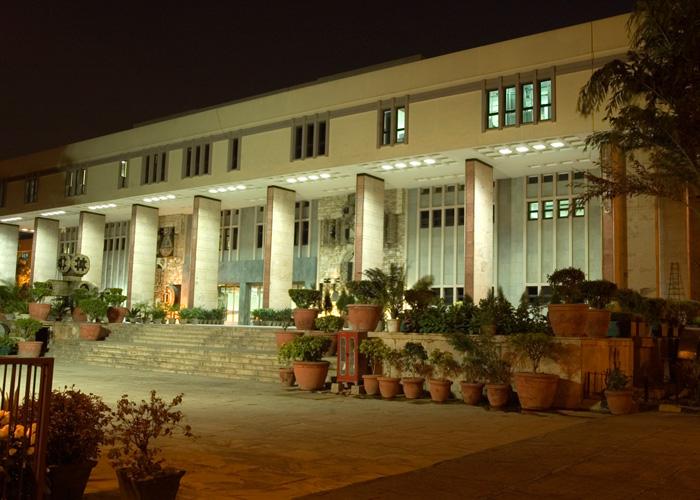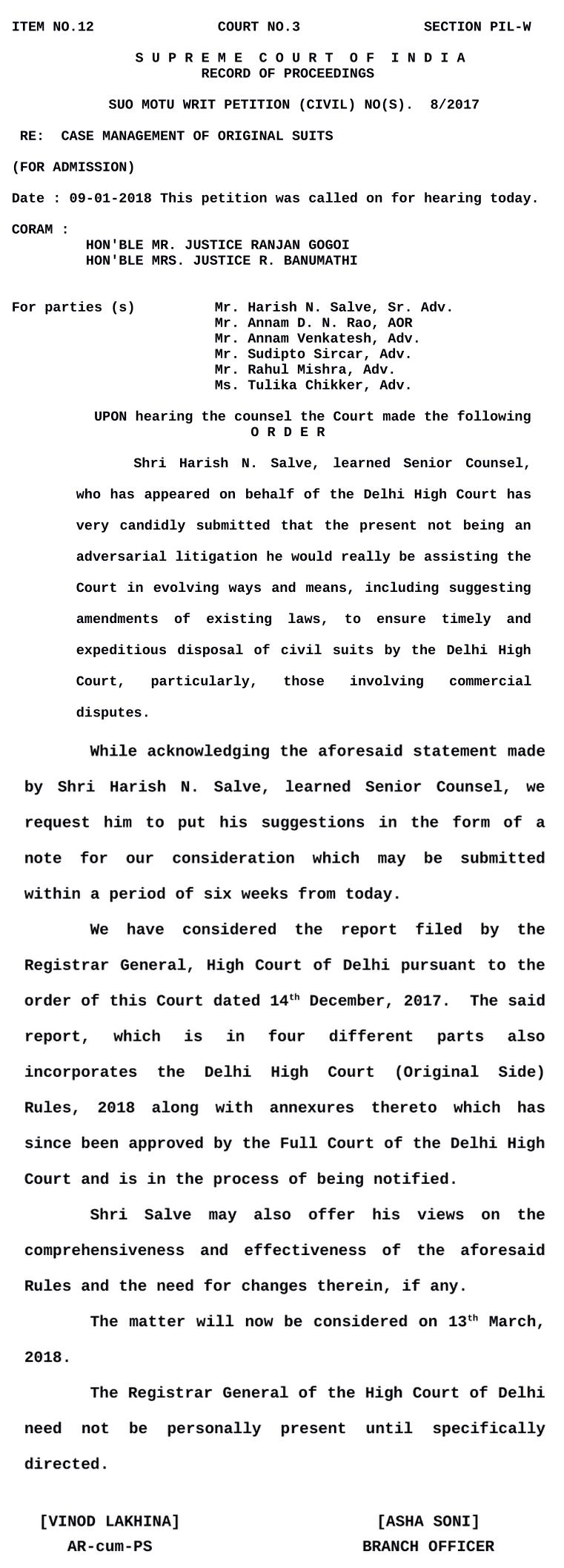
Senior advocate Harish Salve helped the Delhi high court approve, but not yet notify, a set of new rules which would enable it to impose a staggering and unprecedented amount of costs on litigants filing frivolous cases before it, encourage video-conferencing trials and reduce litigation time in other ways.
Once the rules become notified by the high court, which is expected in the first quarter of 2018, litigants whose cases would be deemed frivolous, without merit or filed purely to delay matters could be hit with costs beyond the current Civil Procedure Code limit of Rs 3,000.
Those costs could cover fees of opposing counsel, which could run into many lakh Rupees if senior counsel are appearing.
These and other changes have been brought about by a committee consisting of all of its six judges who have original jurisdiction - justices Manmohan, RS Endlaw, Valmiki J Mehta, Jayant Nath, Yogesh Khanna and Navin Chawla - and some lawyers practising before the high court.
The committee was constituted after the Supreme Court, on its own initiative in July 2017, took up the case of reducing litigation time in the high courts and asked the Delhi high court to lead by framing new procedural rules for cases heard under its original jurisdiction. These new rules would then be passed on to the other high courts, the Supreme Court had planned.
Justices Ranjan Gogoi and R Banumathi had ordered:
At the very outset, we make it clear that the present order should not be perceived to be any kind of interference in the administration of the Delhi High Court but has to be construed to be an effort on the part of the Judiciary as an institution to work out ways and means to dispose of long pending contested civil suits throughout the country for which purpose the Delhi High Court and, particularly, the IPR matters has been taken as the yardstick. The Hon’ble Judges of the Delhi High Court have to work out ways and means for effective disposal of the IPR matters before it so that a model for disposal of civil suits can be culled out from the ways and means adopted by the Delhi High Court which can form the basis of an uniform action plan for the rest of the country.
It is understood from authoritative sources in the Delhi high court that in a full court meeting its judges have already approved the new set of original side rules that have been framed by the committee, and that the high court is expected to notify the new rules in the coming months, perhaps by March.
Salve is appearing for the Delhi high court registrar general Dinesh Kumar Sharma, who in yesterday’s hearing submitted to the bench of SC justices Gogoi and Banumathi that a new set of procedural rules was not enough and that certain amendments to central acts should also be made.
The Supreme Court has not yet released yesterday’s order.
One lawyer practising before the high court explained that according to the new rules, if in hearing a case the high court finds that the litigant who filed it knew that it had no merit and had filed it as a delaying tactic or on other frivolous grounds, the court under the new rules would be able to charge such a litigant with costs up to the cost of the lawyers briefed and instructed by the opposite party.
This is in contrast to the existing practice under which the court usually follows the Civil Procedure Code, which caps the maximum costs that can be imposed at Rs 3,000.
Similarly, witnesses and litigants who are in places outside Delhi during a hearing in the high court have not always been able to make use of the video-conferencing facilities provided by the court to record statements during trial, as there were no express provisions in the high court rules for invoking video conferencing.
The committee has hoped to remedy this situation by including video-conferencing in the new rules.
Update 12:05: One Delhi high court advocate commented that hopefully the revision of the Original Side Rules would address more than just costs and video conferencing: “Need to revamp filing procedures. Registry delays filings by putting in ridiculous objections and defects.” We understand that more revisions are included in the proposed new rules, but have not been able to confirm all of these at this time.
Update 13:24: We understand that the rules also aim to reduce litigation time, for instance by speeding up evidence recording in civil suits, and to reduce the time granted to file proceedings and affidavits of admission and denial.
Update 16:10: The order is now out, setting a next date for 13 March, for which Salve should offer his views on the “comprehensiveness and effectiveness” of the rules and any required changes:

This article was first published exclusively for Legally India subscribers. To get our exclusive updates before anyone else by WhatsApp, please sign up below.
threads most popular
thread most upvoted
comment newest
first oldest
first
I do have an innocent question.
With no offense to anyone - why does one time & again feel that Mr Salve is spoken & written about as if he were the Virat Kohli of the legal fraternity?
What I mean, in all humility and with no disrespect, is that - an ignorant reader of Indian legal news could be forgiven for thinking that Mr Salve was the all-mighty-saviour and the Senior Counsel of all-and-last resort for most matters that are high-stakes or critical.
Perhaps those more enlightened than me or who have worked with the gentleman could shed some light on this, as I myself have not had the privilege.
Plus he does good soundbites on TV? :)
threads most popular
thread most upvoted
comment newest
first oldest
first